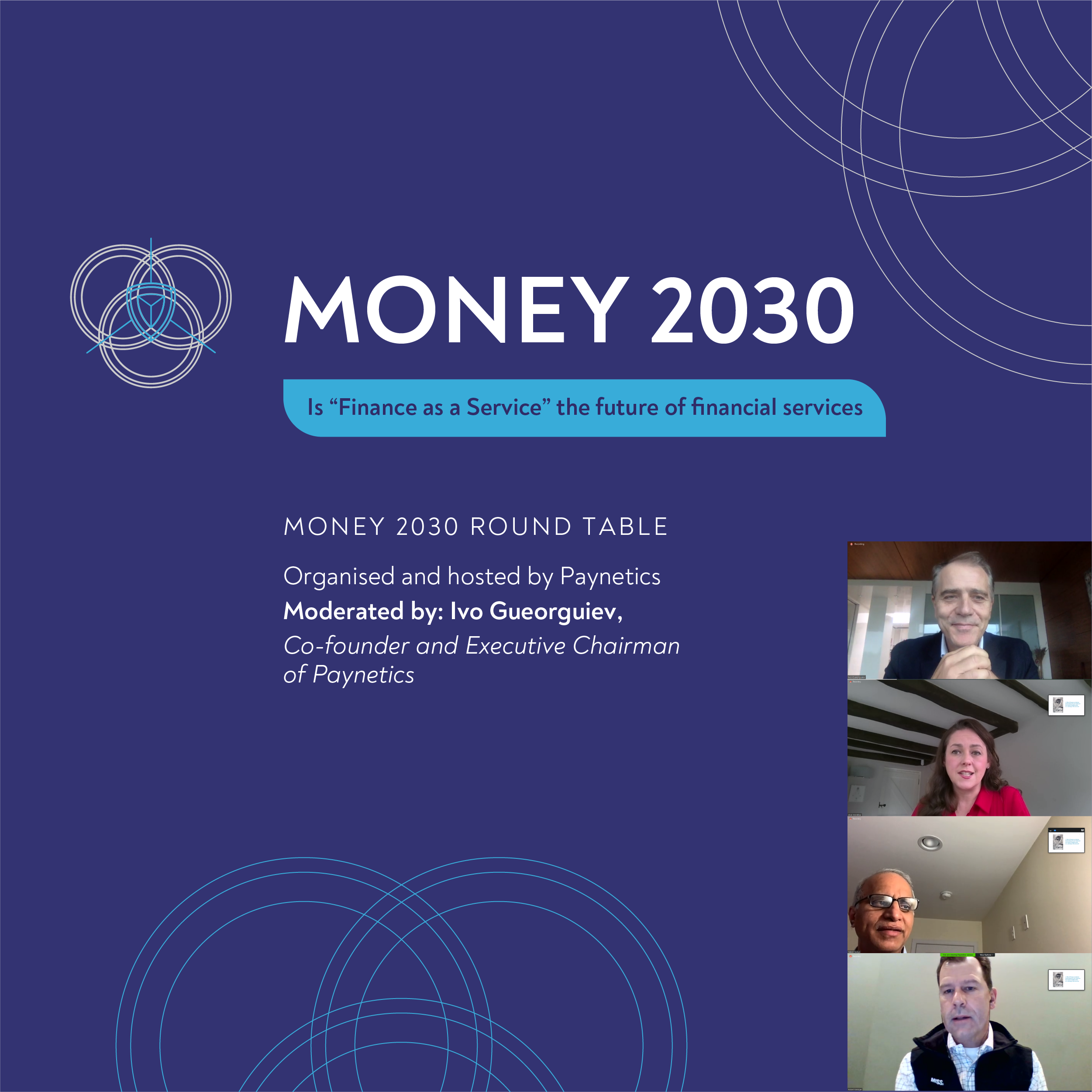Last month, we held the second virtual event in our ‘Money 2030’ series that included expert panelists from across financial services and technology sectors, discussing the future of fintech. The theme for this event was: “Is ‘Finance as a Service’ the future of financial services?”. The online event was chaired by our Executive Chairman and Co-founder Ivo Gueorguiev, and speakers included:
- Scott Abrahams, Senior Vice President, Business Development & Fintech, Mastercard
- Robert Matys, IBM Payment Centre, Global Offering Manager, IBM
- Nilesh Vaidya, Executive Vice President, Capgemini
- ZitahMcMillan, CEO and Co-Founder of Predictive Black
- Rob Metzger, Senior Advisor, Mission OG
- Dawei Wang, Head of Strategy, Thunes
This is the final in our series of blog posts which dive more deeply into the discussion from our knowledgeable panelists. This time, we are taking a closer look at the consumer response to Finance as a Service (FaaS). In particular, we will be asking how consumers will respond to new market entrants and what impact new services will have on consumer expectations.
Rob Metzger of Mission OG expressed the view that one of the potentially beneficial implications of Finance as a Service for the consumer is increased financial inclusion. He noted that the simplicity of financial services and the ability to access them via internet-enabled mobile devices creates the opportunity for new technologies and products to reach millions of consumers who have previously been left out or left behind. By helping to support greater financial inclusion, we a bringing more people into the mainstream financial system and increasing the addressable market size. Perhaps more importantly, there are long lasting social benefits of levelling up and tackling inequality. This was a theme developed by Zitah McMillan of Predictive Black, who talked about the accessibility of new products and services in the market, as well as how demographics are changing so that more consumers are open and willing to adopt new technologies and new financial services providers.
Robert Matys of IBM and Capgemini’s Nilesh Vaidya both picked up on the tension between what is good for the consumer and what makes business sense for providers. Ultimately, whoever best understands the consumer is likely to succeed in the market but there are other factors to consider too. Whilst product variety and lower total cost of services are of obvious benefit to the consumer, these pose significant challenges to the providers, who are expected to square the circle by providing more for less. This developed into a discussion on how essential it is to lower the total cost of ownership. Robert Matys said that global scale helps smaller fintechs to meet the lower potential margin, but that they need to genuinely be able to scale globally in order to achieve this. Nilesh discussed this in relation to the US market specifically, noting that the small and mid-sized banks are partnering with Google to enable them to develop and deploy services both at scale and in a financially sustainable way.
Scott Abrahams from Mastercard talked about the “push and pull of consumer adoption”. On one hand, there’s push, with financial services providers offering services which create a benefit or meet a unmet need for a consumer. Then on the other hand, there’s pull, by creating something which is “cool” and highly desirable to the consumer. Both potentially need to create a compelling enough reason for consumers to move, change provider, or sign-up to a new service.
Thunes’ Dawei Wang also noted a general difference between B2B audiences and B2C audiences. He stated that adoption of new technologies and new ways of doing things is faster in consumer audiences than in business audiences. To exemplify this, he noted that some payments technologies that are widely adopted by consumers are yet to take off in business environments. However, this may all change in the future.
This topic was developed further by our own Executive Chairman and Co-founder Ivo Gueorguiev. He discussed the “explosion of creativity in the retail financial services space” that has created a heightened expectation of ease, simplicity and speed in the mind of the typical consumer. This, he said, will inevitably “trickle up” to a business audience. Ivo predicted that some of the new, innovative financial services offered to consumers will need to extend to the SME sector as customers begin to demand the same customer experience and ease of use in business contexts as they are used to receiving with their personal finances.
One clear, overall takeaway from the discussion with our panelists was that there is a very real sense of dynamism and pace of change in the financial service and fintech space. New technologies, new services, new providers, new ways of doing things and new approaches are developing at an ever-faster rate. The next decade will be one of huge change and innovation in financial services, and in the nature of who provides these services to consumers, and how they are provided. We’re excited to be a part of this. We’re looking forward to developing and deploying new products and services with our clients and partners to help fintech continue to innovate.
If you are interested in taking part in a future Money 2030 round table, please get in touch and we will ensure that you receive an invite to our next event.
